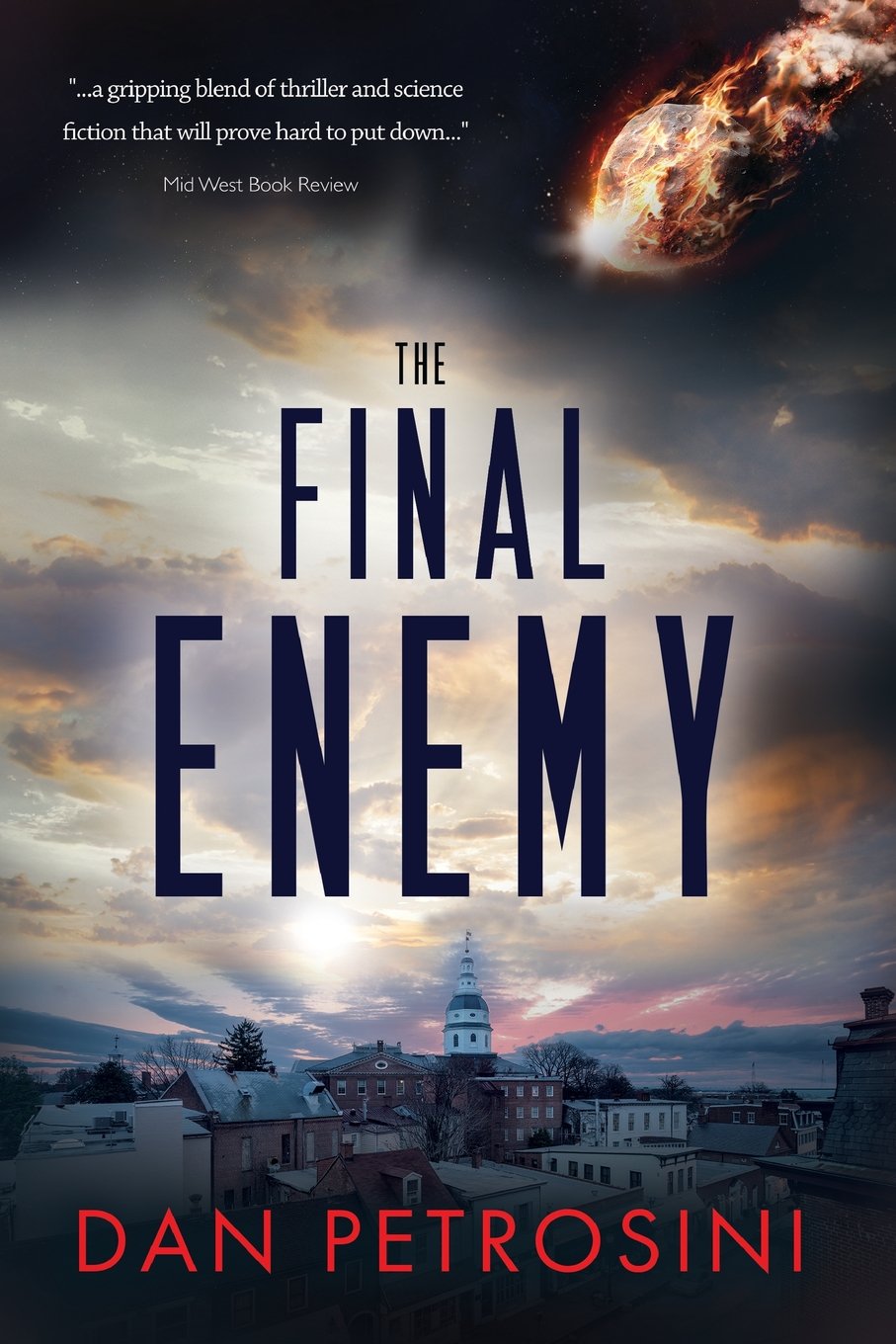Review: The Final Enemy by Dan Petrosini
That is not dead which can eternal lie. And with strange æons even death may die. —H.P. Lovecraft, quoting "The Necronomicon"
I was very excited by this Kindle Scout offering, in which a Davenport, Ohio, reporter discovers a strange effect emanating from a recently-fallen meteorite. The rock seems to have eliminated death by natural causes, at least within a 15-mile radius of its location.
What an opportunity to examine the convoluted ways in which human nature and culture is bound up in the eventual demise of each of us!
So even though the book was not selected in the program, I bought it anyway, and eagerly began reading. Alas! The story quickly bogs down in a rush of "things happening." Worse, our reporter, Jack, is strangely unmoved by some of these events, and curiously overwhelmed by others. Instead of getting a look at how he—and we all—might actually react, we are treated to increasingly shocking scenes.
Without death, there is no reason for God, apparently. There is no real exploration of the premise, just a string of church closures and a snubbed pontiff to illustrate the fact.
Without death (and ridiculously soon), there are far too many people for the planet, leading inevitably to cannibalism and chaos. Not to mention a safe-guarded compound, where the government elites and their hangers-on have enough to eat, of course.
There is the deus ex machina way that the meteorite allows the death "by natural causes" from poisoning, but not from starvation or from complications due to age or disease. It also extends this effect only to human animals, and not any of the other beings with which we share the planet.
And then there is the oh-so-Soylent Green solution for producing extra protein, about which I will only say that it is the dietary equivalent of hoisting oneself by one's own bootstraps, multiplied by the supposedly-burgeoning population numbers.
I won't spoil the novel, because it needs all the help it can get. But if you're not disappointed by the ending, let alone the distressingly boring path the writer drags us along to reach it, you are a very different reader than I am.
Liner Notes:
- The second half of this novel was full of obvious typos and grammatical errors. I suspect the proof-reader had as much trouble wading through it as I did. "Unstainable" for "unsustainable" produced the most hilarious error.
- The writer made the same wrong turn that the Soylent Green film-writers who translated Harry Harrison's Make Room, Make Room! did, and went for visceral shock rather than reaching for more philosophical depths. Try the original Harrison novel for a slightly preachy, but much more nuanced look at the issues that might rise from overpopulation.

No comments:
Post a Comment